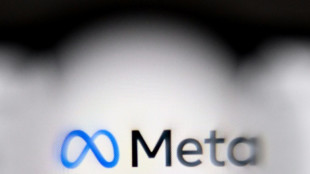Elon Musk's move to buy Twitter faces roadblocks
Even for the richest person on the planet, buying Twitter was always going to be a challenge –- a highly complex financial transaction now made even trickier by a defensive "poison pill" move from the platform's board.
Musk's $43 billion offer lays out the myriad potential pitfalls: possible government approvals, legal as well as regulatory due diligence, negotiations of a final agreement and, of course, how to pay for it all.
Then Twitter's board on Friday showed it won't go quietly, saying any acquisition of over 15 percent of the firm's stock without its OK would trigger a plan to flood the market with shares and thus make a buyout much harder.
"Your move @elonmusk," tweeted Silicon Valley journalist Kara Swisher.
The offer itself, which Musk said was final, values Twitter at $54.20 per share -- above the closing price ahead of his bid, but below a high of $77.06 hit in February of last year.
Even with a moderate and inflexible proposal, which could help the board argue for rejection, it's a fraught moment that could end in lawsuits from just about everyone involved.
To succeed in repelling Musk's offer, the Twitter board will need to be on solid ground making an argument that the company is worth more, said Wharton School finance professor Kevin Kaiser.
Shareholders who feel that the board is rejecting a profitable deal will be free to file lawsuits against Twitter.
- Sidestep the board? -
Musk has the option of sidestepping the board and trying to buy shares directly from shareholders on the market, but that could lead to tedious negotiations with some stock owners holding out for more money.
"The Twitter board has limited ability under Delaware law to stop a tender offer made directly to the shareholders, which Elon Musk hasn't done, but which he could do if he chose to," Kaiser said.
"If he does this, and if the shareholders elect to tender their shares, then he can succeed without needing board support or approval."
While the serial entrepreneur's net worth is estimated at $265 billion by Forbes, his fortune is not sitting in a bank account waiting to be spent.
Musk said at a TED Conference that he had "sufficient funds" to consummate the deal, but financial analysts describe the situation as more complicated.
Much of Musk's wealth comes from shares of electric car maker Tesla, which he runs.
Musk would need to turn a chunk of his Tesla holding into cash, either by selling shares or taking out loans with stock as collateral.
"The specifics of how Musk would finance the deal will determine the ramifications for Twitter," Moody's said in a note to investors.
Moody's estimated it would cost Musk $39 billion to buy all the outstanding Twitter shares, and that there would be "a strong chance" he would have to repay or refinance the San Francisco-based company's billions of dollars of existing debt.
That was before the poison pill move by Twitter that ramps up the cost for Musk.
Musk tweeted a poll that hinted he might be thinking of taking his bid directly to shareholders.
He asked whether taking the company private for his offered price should be up to shareholders and not the board.
As the poll neared its close on Friday, more than 2.7 million votes had been cast with nearly 84 percent of them in favor of the idea.
Selling a massive amount of shares in Tesla to buy Twitter would come with a large tax bill based on capital gains, and could cause shares in the electric car company to sink as the market is flooded with stock for sale.
Musk could keep hold of his shares and get a loan, absorbing the interest payments. Or he could team up with a deep-pocketed partner, but that could come with the strong-willed executive having someone to answer to regarding his decisions at Twitter.
H.Giordano--IM




